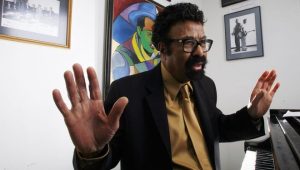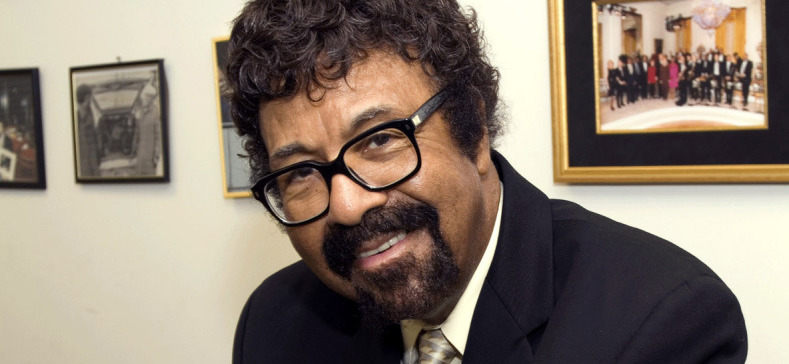Poetry: The Composer’s Muse
Words by Okara Imani
The first utterance of this art song just barely makes the statement “He had a dream…” before reaching, clamoring in upward intervals and sudden crestfallen descents unraveling into the statement’s conclusion. By the time your mind’s ear has registered the innate dissonance in the composition, the line repeats and continues, “exploded down his throat!” and the accompaniment has become uncomfortably wrought with chordal tension, illustrating the scene and setting of Dr. Martin Luther King Jr’s assassination. Not only does it fluently express a raw, authentic sound that resonates with real, lived Black experience, but also the inherent dissonance and charged energy of Mari Evans’ writing of the text.
The adept and visceral painting of text here displays enough music literacy to excite any student of sound, but specifically, I was immediately reminded of my undergraduate career in music study. I was — always will be — determined to fill my recitals with as little classical convention as possible, as I’m certain my persistence in a music degree depended upon that and lessons on Black opera divas, such as Jessye Norman and noise-making composers like John Cage! Though I’d never heard it before learning its name from Melanated Moments in Classical Music, David Baker’s collaboration with Mari Evans for A Good Assassination Should be Quiet felt and sounded so right — so familiar. It could have been easy to cringe at such gaping intervals and sporadic phrasing, but what’s this? I’ve been in this deluge of tones before, accompanied by one, Aaron Copland, and my young adult angst!

I remember rehearsing and performing The World Feels Dusty, part of a cycle Copland arranged for a set of Emily Dickinson poems. Just as writing poetry feels different to me than writing melodies, so singing this cycle felt vastly different in the way the compositions resonated with me. There appears to be a predilection toward rawness in poetry; no overly prettiness to lean on or predictable patterns to follow. I remember that feeling, so similar to the validation found in poetry. I remember how invigorated I was each time I got more comfortable and mastered the melody, each time I sang it through and felt so much I’d poured out into the music.
David Baker’s The Black Experience, penned by Mari Evans would be nothing short of that buzzing and living energy found in a poet’s words. The text abandons strict rhyme, so the music is free to follow the forward-moving storyline, each phrase with no obligation to the motif that came before. This is so active and engaging to the listener, no matter how dissonant and uncomfortable, that they would find themselves morbidly enthralled. Thus, the piece itself serves as a grimy and tarnished mirror into the dark parts of humanity that find twisted entertainment in witnessing one’s demise, or even their discomfort in it. How droll, how melancholy, how very poetic, no?
I challenge you to set your favorite poems to music and hear how the text springs to life. Write out and dissect the songs that move you most, and see that they’re poems at heart, set to music to create the most potent resonance with your mind and body. We’ve all joked and canonized the musician’s muse as a loved one or idol, but I wonder: rather than the people or feelings it evokes, is not the art of poetry itself the composer’s ultimate muse?
Listen to this episode of the Melanated Moments in Classical Music podcast.







Leave a Reply